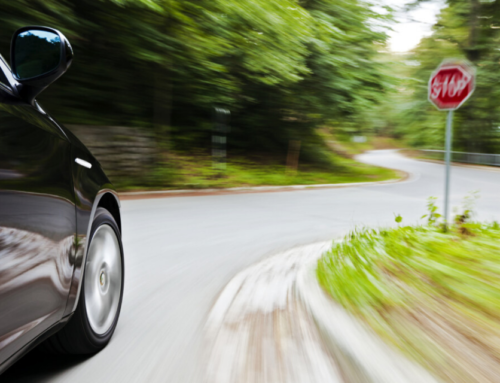A number of risky driving behaviors can be classified as reckless driving in Virginia. Perhaps the most likely impetus for a reckless driving charge is excessive speed, as there are certain mile-per-hour thresholds that can transform what seems like a simple speeding ticket into a possible reckless driving offense – often much to the surprise of the driver who has been stopped.
However, speed is just one of many ways to get saddled with a reckless charge.
Virginia Reckless Driving Categories
Here are the different categories of reckless driving as specified in Virginia law:
- Speeding in excess of 80 miles per hour. This applies no matter the speed limit, even when the speed is 70 miles per hour.
- Speeding 20 miles per hour or more above the posted speed limit.
- Racing with one or more other vehicles.
- Passing or overtaking an emergency vehicle.
- Passing a stopped, properly equipped school bus.
- Passing another vehicle on the crest of a hill or on a curve where the driver’s view is obstructed. This is not a factor when there are two or more lanes designated for each direction of travel.
- Passing another vehicle at a railroad crossing.
- Passing two vehicles abreast, except when the road has three or more lanes heading in the same direction.
- Driving two vehicles abreast in a single lane.
- Driving too fast for current conditions, such as because of the speed and density of traffic or the road conditions due to inclement weather.
- Failing to give a proper signal, such as before making a turn, slowing down or stopping.
- Faulty brakes or driving a vehicle that is not under proper control.
- Reckless driving on parking lots or on a road under construction.
- Driving with an obstructed view, such as because of an overloaded vehicle.
- General reckless driving, which means you have been judged to have driven in a manner that risked the life, limb or property of someone else for any of a number of reasons not noted specifically in the other listed violations. This can be as simple as driving aggressively or weaving and swerving. A driver who has caused an accident without specifically fitting one of the above reckless driving conditions may be charged under this more general infraction.
Each of these types of violations are considered class 1 misdemeanors in Virginia, and they carry a maximum penalty of a $2,500 fine and a jail sentence of up to 12 months. In the case of a conviction for reckless driving, you will be assigned six points on your DMV record. A reckless driving conviction remains on your DMV record for 11 years. This likely will affect your insurance coverage, such as through hiked rates, and it could also lead to suspension of your license.
Depending on the circumstances, your attorney may be able to help you get reckless driving charges reduced to a less severe charge, such as speeding or improper driving, which carry more lenient punishments. These are traffic charges rather than criminal ones and remain on your DMV record for five years, while carrying smaller fines and no risk of jail time.
Reckless driving also can result in felony charges if the driver has had his license revoked or suspended because of moving violations and his driving results in someone else’s death.




